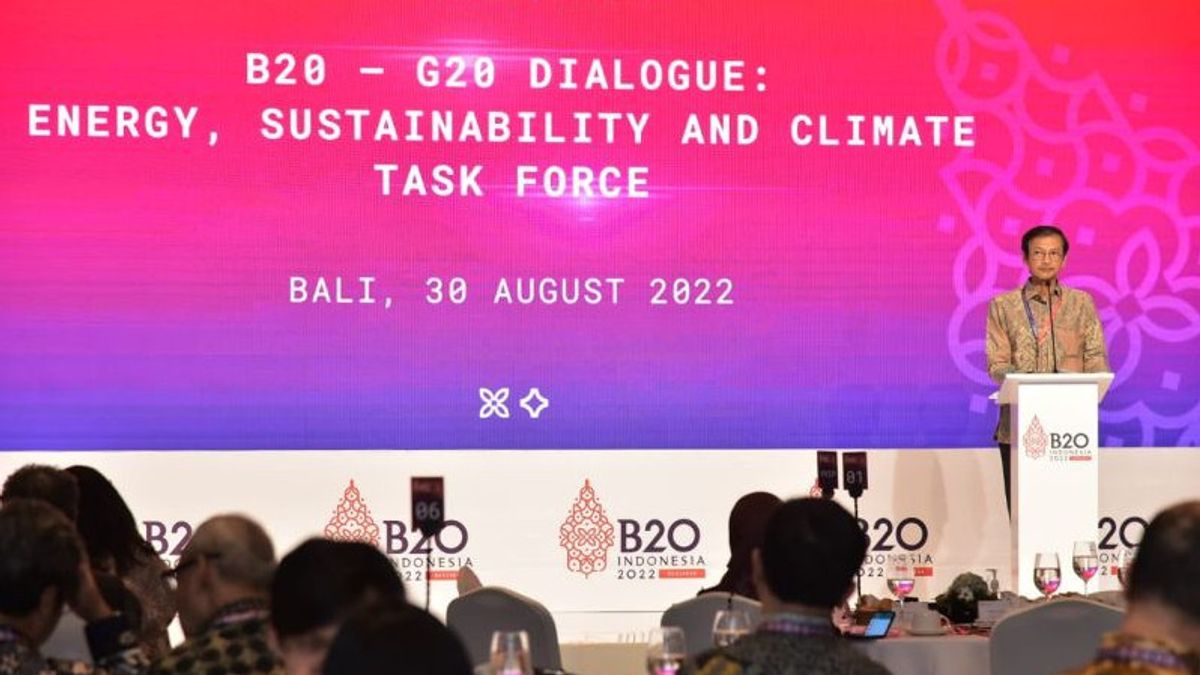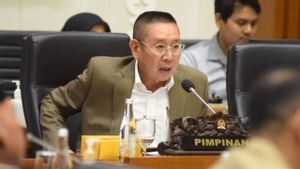JAKARTA - Secretary-General of the Ministry of Energy and Mineral Resources (ESDM) Rida Mulyana invites business people to invest in the New Renewable Power and Energy (EBT). According to him, the shift in fossil energy to new and renewable energy needs to be supported by large funding.
Just so you know, accelerating the energy transition in Indonesia requires an investment of up to 1 trillion US dollars in 2060 for EBT generators and transmissions. "Financial needs are getting higher considering we will implement early retirement of coal power plants in the coming years," Rida said in an official statement, Thursday, September 1.
The amount of funding, continued Rida, requires the mobilization of all financial sources, both from private and public companies.
"Cooperation and collaboration among all renewable energy stakeholders, including the public-private and business partnerships to businesses, has an important role to play in ensuring all renewable energy potential is utilized," he explained.
In the NZE roadmap in 2060 or sooner compiled by the Government, there are additional EBT plants of up to 700 GWs derived from diesel, hydro, biomassa, wind, sea, geothermal, and hydrogen and nuclear.
"We will also reduce the use of fossil fuels by gradually stopping fossil power plants, de-dieselized programs and implementing clean technology such as CCS/CCUS," said Rida.
To achieve this, the government has several strategies in terms of demand (demand). There are three main sectors that are the focus of the government, namely transportation, industry, households and commercial.
In the transportation sector, the government will increase the use of biofuel, penetration of electric vehicles, use of hydrogen for trucks, environmentally friendly fuel for flights, low-carbon fuel for delivery (amonia, hydrogen, vegetable fuel), e-fuel from biosyngas, green hydrogen, and ship electrification for close range.
There is also an industrial sector that will be intended to increase electricity share, hydrogen as a substitute gas, substitution biomass, the spread of CCS. Meanwhile, from the household and commercial sectors, the government accelerates the use of induction stoves, utilization of city gas, to energy efficiency programs, including optimizing energy management and the use of energy-efficient equipment.
"All efforts in terms of supply and demand will reduce emissions by 1,789 million tons of CO2e by 2060. We will achieve zero emissions from the electricity sector, but 129 million tons of carbon emissions remain in the industrial sector and transportation," explained Rida.
For information, Business 20 or B20 is one of the leading engagement groups in the G20 under the Sherpa Track representing the international business community. Through the existence of business actors from around the world, B20 reflects the role of the private sector as a driver of strong, sustainable, and balanced economic growth.
The English, Chinese, Japanese, Arabic, and French versions are automatically generated by the AI. So there may still be inaccuracies in translating, please always see Indonesian as our main language. (system supported by DigitalSiber.id)








